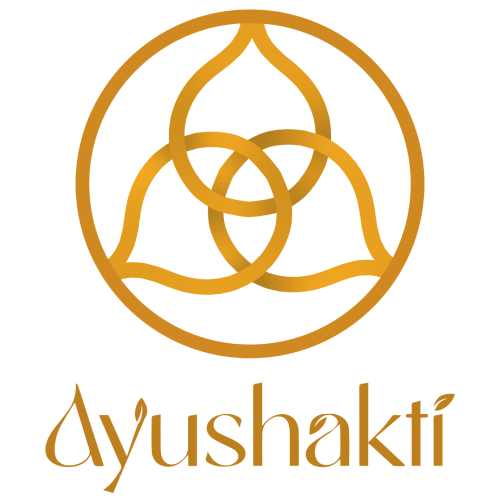
Heart Attack vs. Cardiac Arrest: Knowing the Difference Can Save Lives
Share
Introduction: Why Understanding the Difference Matters
 Heart problems are among the leading causes of death worldwide. Yet many people confuse a heart attack with a cardiac arrest, thinking they’re the same thing. In reality, these two are completely different medical emergencies — one is about blocked blood flow, and the other is about heart rhythm failure.
Heart problems are among the leading causes of death worldwide. Yet many people confuse a heart attack with a cardiac arrest, thinking they’re the same thing. In reality, these two are completely different medical emergencies — one is about blocked blood flow, and the other is about heart rhythm failure.
From an Ayurvedic perspective, both conditions arise due to an imbalance in Vata, Pitta, and Kapha doshas, which disturb the heart’s natural rhythm and strength. Understanding this difference — and acting fast — can truly save lives.
What Happens During a Heart Attack?
 A heart attack (Myocardial Infarction) occurs when blood flow to a part of the heart muscle is blocked, usually due to plaque buildup (fat, cholesterol & other substances) in the coronary arteries.
A heart attack (Myocardial Infarction) occurs when blood flow to a part of the heart muscle is blocked, usually due to plaque buildup (fat, cholesterol & other substances) in the coronary arteries.
When this happens, that portion of the heart muscle doesn’t get enough oxygen. If the blockage isn’t treated quickly, the heart tissue begins to die.
Common causes include:
- High cholesterol & triglycerides
- Smoking or excessive alcohol use
- Uncontrolled diabetes and hypertension
- Sedentary lifestyle
- Emotional stress or shock
Symptoms of a Heart Attack:
- Chest pain or pressure (feeling like something is sitting on your chest)
- Pain radiating to the left arm, neck, jaw, or back
- Shortness of breath
- Cold sweats
- Nausea or lightheadedness
In Ayurveda, this is often linked to Vata and Kapha imbalance. The blocked flow of rasa (nutrient plasma) and rakta (blood) creates srotorodha (channel obstruction), leading to heart distress.
What Happens During a Cardiac Arrest?
 A cardiac arrest is completely different. It happens when the heart suddenly stops beating due to an electrical malfunction. This means the heart cannot pump blood to the brain, lungs, and other organs.
A cardiac arrest is completely different. It happens when the heart suddenly stops beating due to an electrical malfunction. This means the heart cannot pump blood to the brain, lungs, and other organs.
Without immediate CPR or defibrillation, cardiac arrest can cause death within minutes.
Symptoms of Cardiac Arrest:
- Sudden collapse
- No pulse
- No breathing
- Unconsciousness
While a heart attack may lead to cardiac arrest, not all cardiac arrests are caused by heart attacks. Other triggers include severe arrhythmias, trauma, or congenital heart conditions.
In Ayurveda, this sudden collapse corresponds to an extreme vata disturbance, where the Prana Vayu (life air) suddenly withdraws from the heart and brain centers.
Ayurvedic View of the Heart (Hrudaya)

In Ayurveda, the heart is called “Hrudaya” — the seat of consciousness, courage, compassion, and life force. It’s not just a physical organ but the spiritual center of the body.
The Charaka Samhita describes the heart as one of the marma (vital) points, where even a slight injury or imbalance can lead to fatal consequences.
The heart’s health depends on three main energies:
- Vata (movement and rhythm of the heart)
- Pitta (metabolism and warmth)
- Kapha (stability and nourishment)
When these doshas go out of balance — due to stress, unhealthy food, or emotions — heart disorders may appear.
Major Ayurvedic Causes Behind Heart Diseases
-
Improper Diet (Ahara):
Heavy, fried, salty, or stale foods increase Kapha and Ama (toxins), blocking arteries. -
Emotional Stress (Manasika Hetu):
Anxiety, anger, grief, and jealousy disturb Prana Vayu and Sadhaka Pitta — the emotional energies of the heart. -
Lack of Exercise (Vihara):
Sedentary lifestyle leads to sluggish metabolism, poor circulation, and Kapha accumulation. -
Suppression of Natural Urges:
Ignoring the urge to sleep, cry, or even sneeze can disturb Vata and affect heart rhythm. -
Toxic Accumulation (Ama):
Poor digestion leads to the buildup of sticky toxins that clog the srotas (channels).
Ayurvedic Remedies and Herbs for Heart Health
 1. Arjuna (Terminalia arjuna)
1. Arjuna (Terminalia arjuna)
Known as the guardian of the heart, Arjuna strengthens cardiac muscles, regulates cholesterol, and improves circulation. Arjuna bark powder or capsules are often recommended for heart wellness.
2. Ashwagandha (Withania somnifera)
A natural adaptogen that calms stress, reduces cortisol, and stabilizes heart rate.
3. Guggul (Commiphora mukul)
Helps reduce cholesterol and triglyceride levels while cleansing the blood channels.
4. Brahmi and Shankhpushpi
These herbs soothe the nervous system, helping balance emotions that affect heart rhythm.
5. Garlic (Lashuna)
Improves blood flow, reduces blood pressure, and prevents plaque formation.
6. Triphala
Supports detoxification and improves lipid metabolism — vital for long-term heart protection.
Ayurvedic Diet for a Strong Heart
Ayurveda emphasizes that the food you eat becomes your medicine. A heart-healthy diet should:
- Include fresh fruits like pomegranate, apple, and amla.
- Favor warm, cooked foods over cold, raw items.
- Use heart-friendly oils like ghee or sesame oil in moderation.
- Avoid excessive salt, fried food, or processed sugar.
- Add spices like turmeric, cumin, coriander, and cardamom to enhance digestion.
- Drink warm water with a few drops of lemon in the morning to cleanse Ama.
Lifestyle Tips for Heart Health
-
Practice Meditation and Pranayama:
Deep breathing balances Prana Vayu and calms emotional stress. -
Daily Exercise:
Gentle yoga poses like Setu Bandhasana (Bridge Pose), Tadasana, and Surya Namaskar enhance circulation. -
Adequate Sleep:
Aim for 7-8 hours of restful sleep to allow the heart to recover. -
Avoid Overthinking:
Mental stress increases Vata and can disturb heart rhythm. -
Stay Hydrated:
Dehydration thickens blood and increases strain on the heart.
Emergency First Aid Response
 Even with the best preventive care, emergencies can occur. Here’s what to do immediately:
Even with the best preventive care, emergencies can occur. Here’s what to do immediately:
If it’s a Heart Attack:
- Call emergency services right away.
- Keep the person calm and seated.
- Loosen tight clothing.
- If available, chew one aspirin (unless allergic).
If it’s a Cardiac Arrest:
- Start CPR immediately if the person is unresponsive.
- If an AED (defibrillator) is available, use it as soon as possible.
Remember — quick action saves lives.
How Ayurveda Helps After a Heart Event
Ayurvedic post-recovery programs focus on strengthening the heart, improving digestion, and balancing doshas. This can include:
- Panchakarma therapies like Hridaya Basti (oil pooling over the heart area).
- Gentle detoxification through Snehana (oil therapy) and Swedana (steam therapy).
- Diet adjustments and Rasayana (rejuvenation) tonics for energy and repair.
A professional consultation is always advised before starting any Ayurvedic routine after a cardiac event.
Mind-Heart Connection in Ayurveda
Ayurveda says, “Manasa shanti hridayasya balam.” — Peace of mind is the strength of the heart.
Your emotions directly affect your heart. Chronic stress, anxiety, or anger can disturb Prana Vayu, causing irregular heartbeat, high blood pressure, and fatigue.
Practices like mindfulness, chanting, journaling, and spending time in nature can deeply heal emotional imbalances and protect the heart.
Modern and Ayurvedic Integration
While Ayurveda focuses on prevention and balance, modern medicine excels at emergency response and surgical precision. The future of cardiac care lies in integrating both systems — using Ayurveda for long-term prevention and allopathy for acute management.
You can also explore heart-care product options made from Ayurvedic herbs that support cardiac wellness.
For students eager to learn how ancient wisdom can transform modern health, the Ayushakti Academy of Ayurveda offers authentic learning experiences guided by traditional Vaidyas.
Conclusion: Your Heart is More Than a Pump
A heart attack and a cardiac arrest may seem similar, but their nature and causes differ greatly. A heart attack blocks blood flow, while a cardiac arrest stops the heartbeat.
From the Ayurvedic view, both are warnings from your body that your Prana, Ojas, and emotions need care. A balanced diet, mindful living, herbal support, and emotional peace can make your heart not just strong — but radiant with life.
For regular health tips & updates visit Ayushakti’s Social Media Pages:
- Facebook – Ayushakti Ayurved | Facebook
- Instagram – Ayushakti Ayurved (@ayushakti)
- Pinterest – ayushaktiayurveda
Get all the updates about Ayushakti Ayurved on WhatsApp directly. Click here to Join our WhatsApp Channel
Ayushakti's mission is to help people in every way possible. Our Ayurvedic experts are available to give you a consultation either over the phone or through a video consultation. We recommend customised diets, home remedies, and detox therapies to help you recover from health problems. Book your consultation now!
If you would like to know the location or visit one of our centres, please click here: https://www.ayushakti.com/home/p/contact
For more information, write to us at info@ayushakti.com or call our toll-free numbers: 18002663001 (India) and +18002800906 (Global).
Blog Author: Dr. Ramchandra Konduskar
Expert Review: Dr Smita Pankaj Naram
Co-Founder, Ayushakti Ayurved Pvt Ltd
Disclaimer: This blog is for educational purposes only. Please consult an Ayurvedic practitioner before trying or consuming any medicines, home remedies or treatments mentioned in this blog. The information provided is not intended to diagnose, treat, cure, or prevent any disease.





